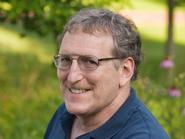
In fielding media queries on the re-emergence of anti-war sentiment, Hamilton College Professor Maurice Isserman has been asked to compare the movements against the war in Vietnam in the 1960s and the potential war in Iraq in 2003.
"What I've noticed repeatedly is that the questioners begin with the assumption that the anti-war movement of the 1960s consisted almost exclusively of young people, college students, hippies, New Left radicals, and similar categories. This represents a vast over-simplification," Isserman says. "It was Martin Luther King, Jr. -- not Mark Rudd or Bernadine Dohrn or Mario Savio -- who declared in the spring of 1967 that the American war in Vietnam 'seeks to turn the clock of history back and perpetuate white colonialism' and later that spring condemned the United States government as 'the greatest purveyor of violence in the world today.'"
"The anti-war movement of the 1960s was considerably more diverse than stereotyped thinking about the decade would suggest, drawing as it did on the civil rights movement, the religious community, labor, veterans [including, prominently, veterans of the Vietnam War], active duty military personnel, and others whose participation in protest activities has been selectively edited out of our historical memory of the era. And anti-war sentiment [as opposed to personal involvement in anti-war protest] was even more diverse -- revealing a depth of anti-war opinion at odds with both the 'silent majority' rhetoric of the Nixon administration and subsequent historical stereotypes, i.e. people without college educations were even more likely to express opinions opposed to the war than people with college educations."
Isserman, the William R. Kenan, Jr. Professor of History at Hamilton College, is an expert on reform and radical movements and on 20th-century U.S. history, particularly the 1960s. He is widely acknowledged to be the preeminent historian of the American left. A former Fulbright grant-winner, he is co-author of "America Divided: The Civil War of the 1960s." His most recent book, "The Other American: The Life of Michael Harrington," has been named to countless non-fiction "must-read" lists. His current research is on the history of mountaineering. Isserman was recently in England, where he was on academic exchange with Pembroke College and Oxford University. This semester, Isserman will be teaching a class on World War II.
